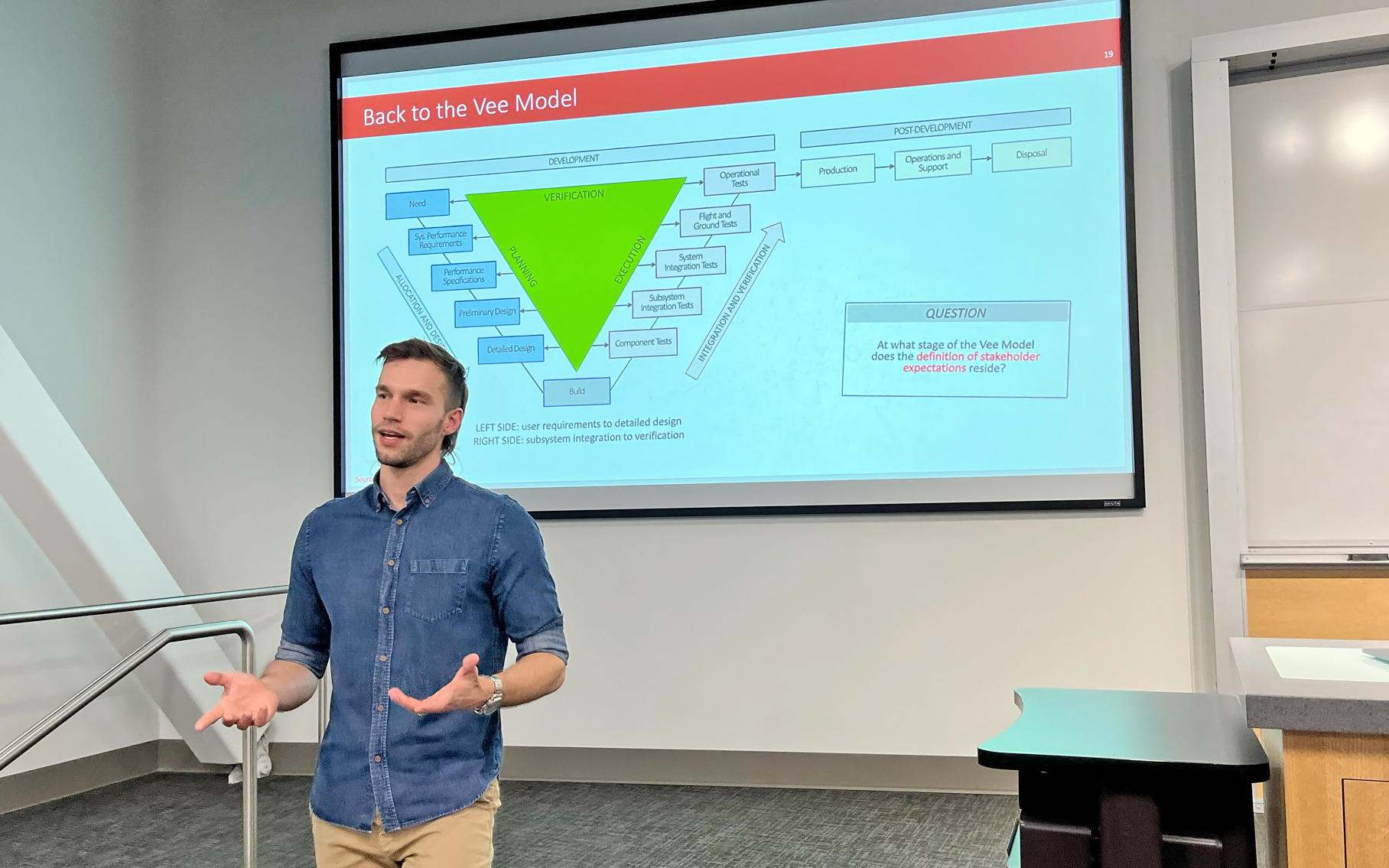The Utah legislature, heavily influenced by the local industry, recognized a strong demand for systems engineers in the state and awarded targeted funds to the Mechanical Engineering Department to strengthen and develop Systems Engineering in Utah. In Fall 2021, The U hired Drs. Todd Easton and Pedro Huebner to grow systems engineering programs, knowledge, and industry relationships. Currently, The U offers a Graduate Systems Engineering Certificate to both on-campus and online students. A B.S. in Mechanical Engineering with an emphasis in Systems Engineering is launching in Fall 2022.

Made by and for humans, engineered systems integrate a variety of elements that function together with sufficient coherence to satisfy a certain need or objective. At the core, Systems Engineering is the ability to realize a system from a concept into a useful product and supporting it through production until retirement. This is accomplished by identifying stakeholder needs, system requirements, building models, planning, testing components and final products, building production systems and documenting all design components, procedures, processes, and areas of concern. These steps help ensure that the system is not only built right, but is also the right system. The end result is a collection of standardized processes that enable the realization of improved products that are produced cheaper and with fewer errors.
Systems Engineering’s primary goal is to improve efficiency, which can be defined in numerous ways, but mainly as a tool to ensure that all effort is positively impacting a product or service. Its tools and concepts are shared with many other disciplines, including Industrial Engineering, Management Science and Data Science. Surprisingly, a substantial amount of “work” does not create benefit to the company or organization. In many cases, an organization would have been better off if some “work” had never been done. By systematically applying strategic tools and techniques, systems engineers improve the productivity in a broad range of fields, such as manufacturing, government, financial, energy, healthcare, agriculture and education.
The U.S. Bureau of Labor Statistics estimates that the job growth in Systems Engineering and related fields will grow by about 14% between 2020-2030, which is well above the average of all professions. Currently, the majority of the Department of Defense and NASA contract funding requires systems engineers to be heavily involved in projects. Systems Engineering streamlines the development process, which improves the functionality and efficacy of the final product.
Drs. Easton and Huebner believe that a foundational Systems Engineering knowledge can only add value to the credentials of any engineer. The Systems Engineering courses are designed to broaden the perspective of a traditional engineering expert by adopting a systems thinking approach. Courses pull examples from many different industries and daily life experiences. This helps students develop better decision-making skills and learn new effective tools to become better prepared to excel in all of their future endeavors.